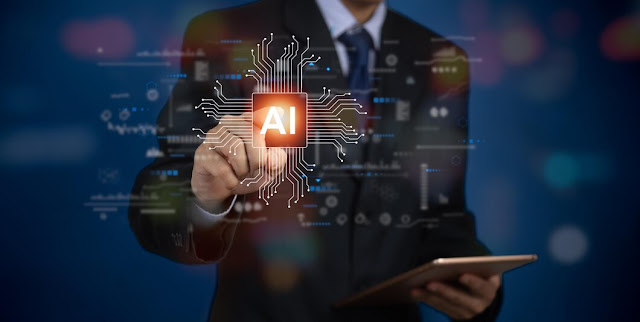The Role of AI in Transforming Business Application Monitoring
The incorporation of Artificial Intelligence (AI) into business application monitoring signifies a noteworthy advancement in the way organizations oversee their IT infrastructure. AI-driven monitoring services are changing application monitoring's efficacy and efficiency while also offering deeper insights that were previously impossible to obtain with conventional techniques. Here's a thorough examination of the revolutionary role AI plays in this industry.
1. Proactive Management with Predictive Analytics
Predicting possible problems before they create major disruptions is one of AI's most noteworthy contributions to business application monitoring. Utilizing past data, predictive analytics finds trends and forecasts future results. These systems use machine learning methods to predict network bottlenecks, application problems, and server outages. Because of this insight, IT staff are able to take preemptive measures that save expensive downtime and guarantee uninterrupted business operations.
2. Performance Analysis with an Enhanced Approach
Artificial Intelligence (AI) improves performance analysis by tracking and comprehending the massive volumes of data produced by business apps. It has the ability to instantly evaluate this data and offer insights into user behavior, system health, and application performance. AI, for instance, is capable of automatically spotting irregularities in application behavior that can point to a security flaw or bug that human monitors or traditional monitoring technologies might miss.
3. Root Cause Analysis Automated
While traditional monitoring technologies can notify teams of problems, they frequently cannot provide an explanation for why those problems happened. With its automated root cause analysis capabilities, AI fills in this gap. AI systems can track the source of a problem across linked systems and applications by utilizing methods like pattern recognition and data correlation. This feature not only expedites the resolution process but also lessens the amount of manual labor needed, allowing IT personnel to concentrate on more strategic duties.
4. Instantaneous Decision-Making
Artificial intelligence (AI)-powered monitoring systems possess the ability to make decisions automatically in response to certain situations. These systems can make decisions in real time, such as rapidly resolving security concerns or reallocating resources in response to rising demand, based on predefined rules and learned habits. This degree of automation makes sure that programs run as efficiently and securely as possible without the need for human intervention—an essential feature in hectic work settings.
5. Making the Best Use of Resources
Without accurate data, resource allocation in IT can frequently be left to speculation. Artificial Intelligence (AI) revolutionizes this procedure by examining past and present data to identify patterns of usage and forecast requirements. This makes it possible to allocate resources more precisely, guaranteeing that apps get the resources they require without needless overprovisioning. This kind of optimization lowers expenses related to under- or over-utilized infrastructure while simultaneously improving application performance.
6. Enhancing the User Interface
Additionally, AI is essential for tracking and improving the end-user experience. Artificial Intelligence can detect areas of friction or dissatisfaction by continuously evaluating user interactions with programs. Businesses can improve user satisfaction and engagement by using this research to better personalize applications to fit user needs and address concerns more quickly.
7. Using Elasticity in Scaling
Applications must expand with enterprises to meet their needs. Monitoring systems powered by AI are skilled at interpreting scalability needs from both predictive and real-time data. This feature makes sure that the IT infrastructure scales up or down effectively to meet demand without human monitoring, giving users a seamless experience regardless of variations in load.
8. Ongoing Education and Development
The capacity of AI to continuously learn and improve in application monitoring may be one of its most revolutionary features. Artificial intelligence (AI) systems become more accurate and efficient at monitoring and managing commercial applications as they are exposed to more data over time. Organizations may keep ahead of problems and continuously optimize their apps with the help of this loop of continuous improvement.
In summary
The transformation of business application monitoring is largely dependent on AI. By offering insights obtained from intricate data analysis, it not only improves the ability of IT teams to maintain system health and application performance but also supports strategic business choices. AI technologies will become more and more integrated into application monitoring as they develop, leading to greater innovations and efficiencies in the way enterprises run and expand.


Comments
Post a Comment